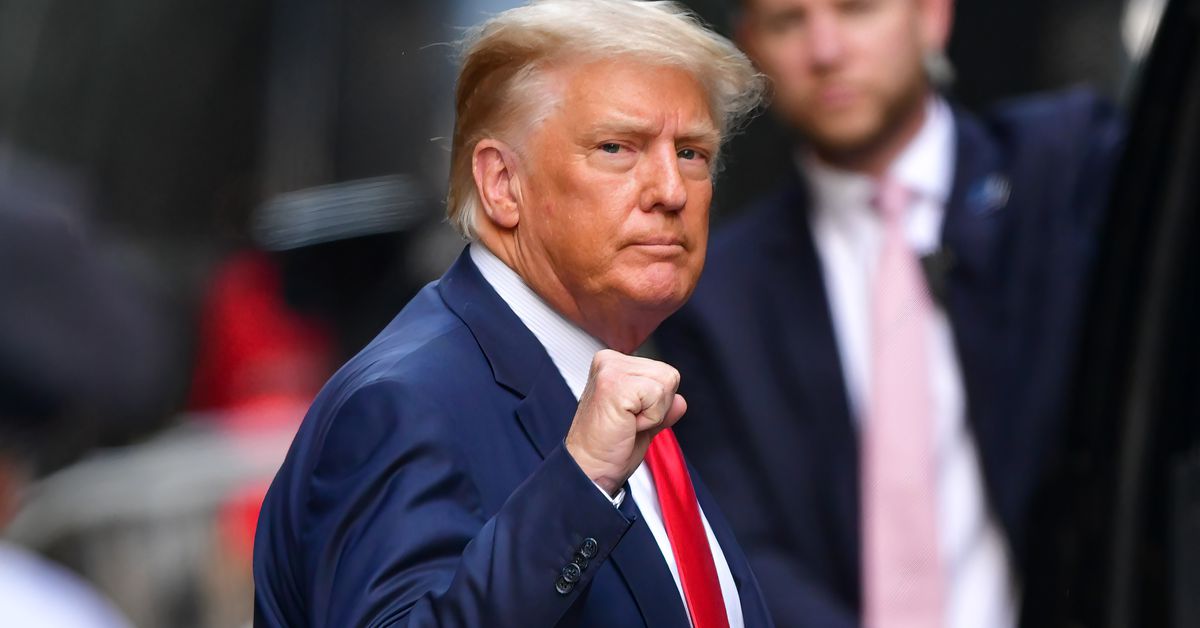Donald Trump may be about to escape legal peril yet again. A long-running investigation into Trump’s business practices from the Manhattan district
Donald Trump may be about to escape legal peril yet again.
A long-running investigation into Trump’s business practices from the Manhattan district attorney’s office appears to have been derailed, as the two lead prosecutors, Carey Dunne and Mark Pomerantz, resigned Wednesday. A New York Times report suggests they did so because the new district attorney, Alvin Bragg, told them “he had doubts about moving forward with a case” against Trump.
The big question is why. Did Bragg legitimately conclude that the case against Trump, which he inherited from former district attorney Cyrus Vance, was weak?
Or did he get cold feet about taking on the powerful former president?
The Manhattan district attorney office’s investigation into Trump, briefly explained
This investigation dates back to 2019, and it has already resulted in some charges. Last July, prosecutors indicted the Trump Organization and its chief financial officer, Allen Weisselberg, for tax fraud, alleging they hadn’t properly paid taxes on “fringe benefits” Weisselberg received as part of his salary. A trial on these charges is expected to begin later this summer.
But prosecutors were trying to make a broader case against Trump himself, on a different matter: his company’s real estate valuation practices. They had a theory, backed by copious public evidence and the testimony of former Trump lawyer Michael Cohen, that Trump overvalued certain properties when he sought loans and insurance policies, but undervalued those assets for tax purposes, so he’d owe less in property taxes. Prosecutors could have potentially charged him with tax fraud, bank fraud, or insurance fraud.
The challenge would have been proving that Trump knew his company was breaking the law. He could have argued that everything the company was doing was approved by his CFO and legal team, experts in such matters, and that he therefore thought such practices were very legal and very cool.
That’s why, it seemed, prosecutors zeroed in on Weisselberg, the company CFO. If Weisselberg flipped, perhaps he could offer testimony that Trump knowingly broke the law. They tried for months to turn him into a cooperating witness, and finally indicted him on the separate fringe benefits matter when he wouldn’t play ball.
Meanwhile, the real estate valuation probe continued to move forward. But Vance, the longtime Manhattan DA, decided not to run for reelection in 2021. Alvin Bragg, the former chief deputy attorney general of New York state, was elected to succeed him, and took office this January. Bragg, who ran on a criminal justice reform platform, has already been embroiled in controversy due to a memo he sent instructing prosecutors to avoid seeking jail sentences for a series of crimes.
All that is the context for this latest dramatic turn. The Times also reports there was “a monthlong pause in [prosecutors’] presentation of evidence to a grand jury,” perhaps suggesting that Bragg was reviewing the case, before he eventually told the prosecutors he had doubts about it, apparently spurring their resignations. The probe isn’t officially dead yet, but its future doesn’t really look bright after this development.
What does it all mean?
So what happened here? It’s impossible to say without getting a clearer idea of the evidence prosecutors amassed, but there are two main possibilities.
First is the possibility Trump critics fear — that Bragg is killing a strong investigation for his own reasons, whether those reasons may be fear of taking on the powerful, philosophical skepticism of aggressive prosecutions, or something else. However, it is worth noting that Bragg’s reelection interest in deeply liberal Manhattan would likely be served by aggressively prosecuting Trump, so if anything, this hurts his political future.
Second is the possibility that Bragg is killing a weak investigation. There have long been doubts about the case Vance’s team was trying to build. The indictment of Weisselberg and the Trump Organization was rather unusual: neglecting to pay taxes on fringe benefits is a criminal act, but it is rarely enforced so aggressively. As mentioned, Trump’s knowledge would be hard to prove without a high-level cooperator. Still, the prosecutors who quit clearly believed in their case.
The truth could also lie in the middle — the case might not be definitively weak or strong but rather somewhere in between. So this could just be a genuine difference of opinion about the case, with no nefarious behavior necessary.
The bigger picture, of course, is that Trump appears to be preparing to run for president again in 2024, after attempting to steal the election last time. Both liberals who loathe Trump and Republicans who hope to return their party to some semblance of normalcy have been hoping he’ll be removed from contention somehow, and criminal charges in the Manhattan probe were one way that could happen.
Many Trump critics are so convinced he is such a blatant criminal that they believe “getting” him on even small-ball charges would be laudable, as Al Capone was taken down for tax evasion. While Vance was still in office last year, the former president’s estranged niece, Mary Trump, told the New Yorker, “It’s incredibly urgent that Vance prosecutes Donald now.”
But that prosecution now looks significantly less likely to materialize.
